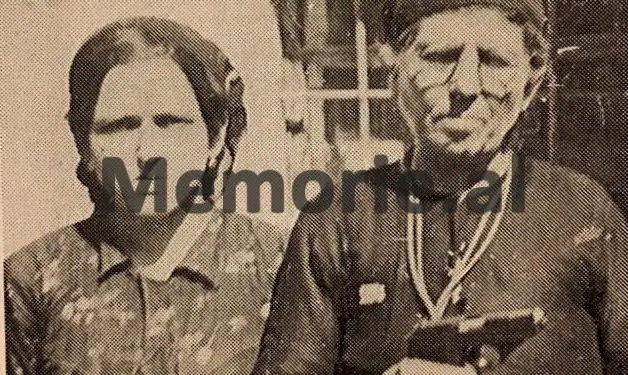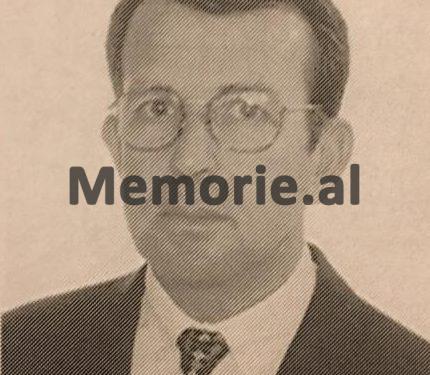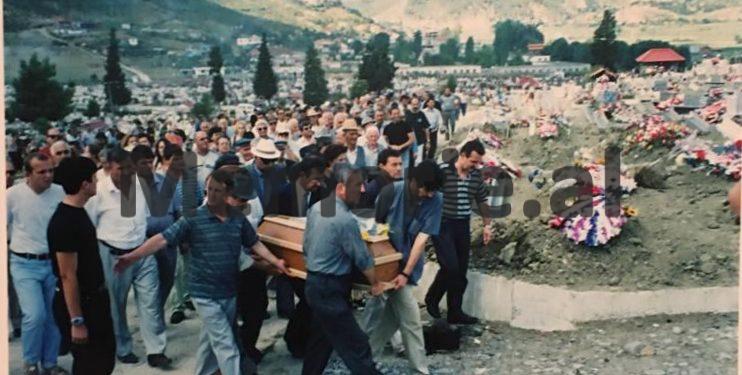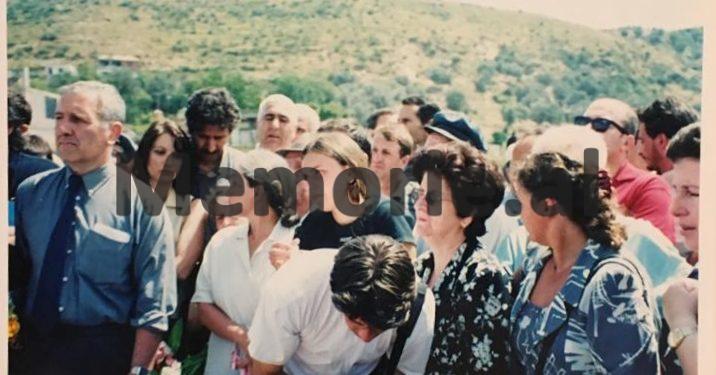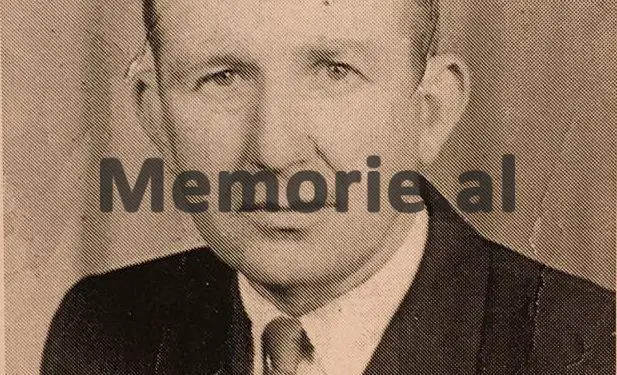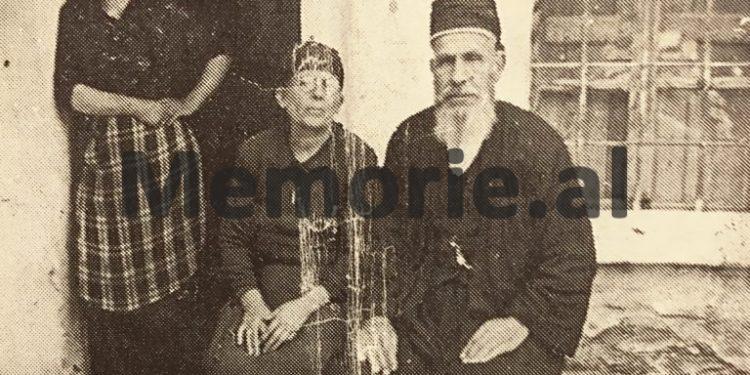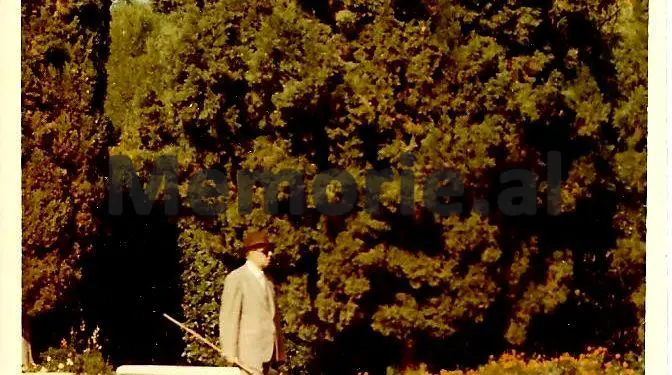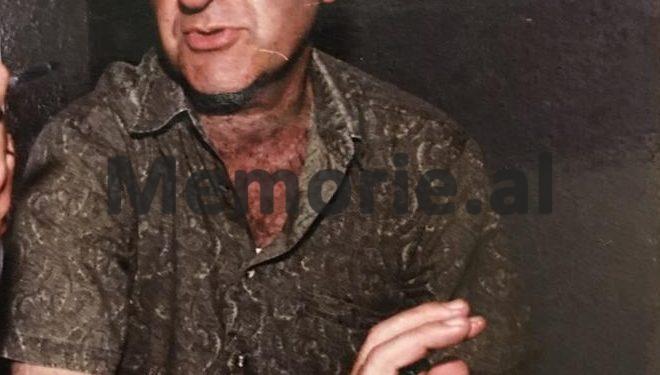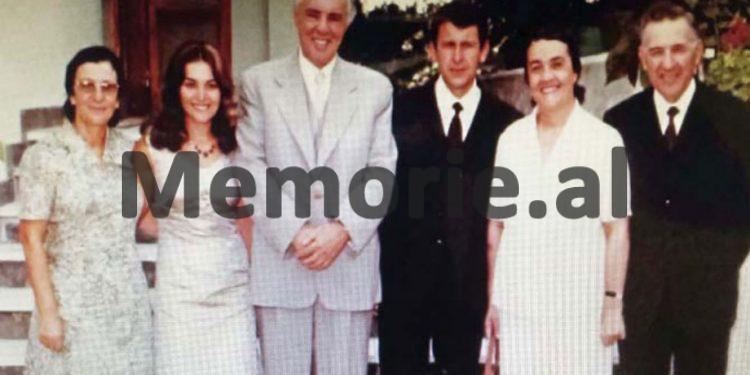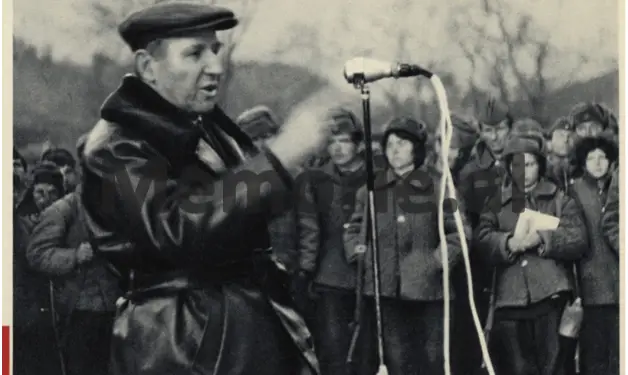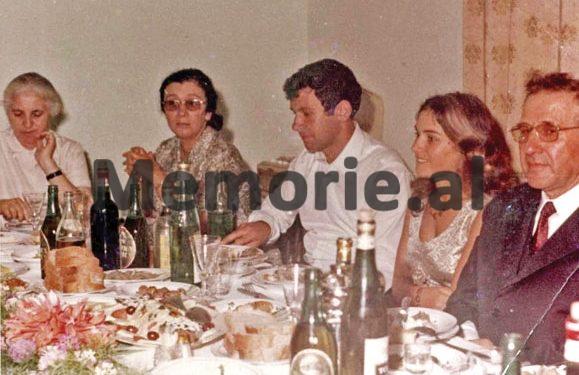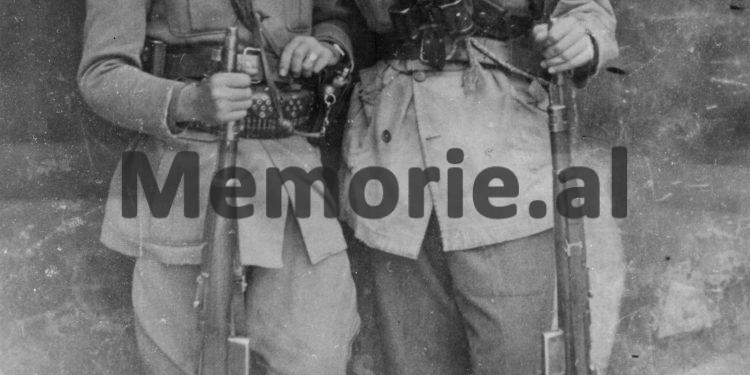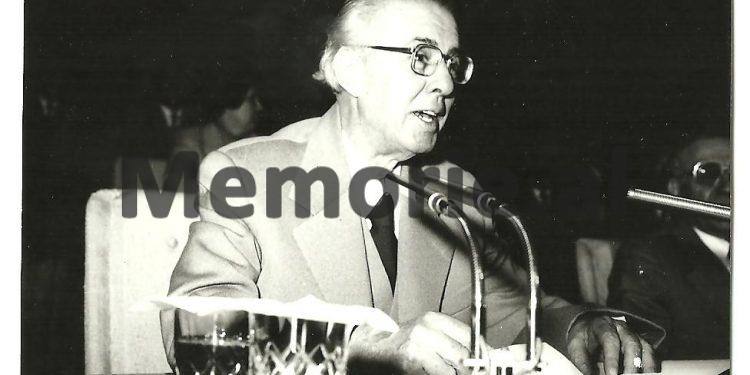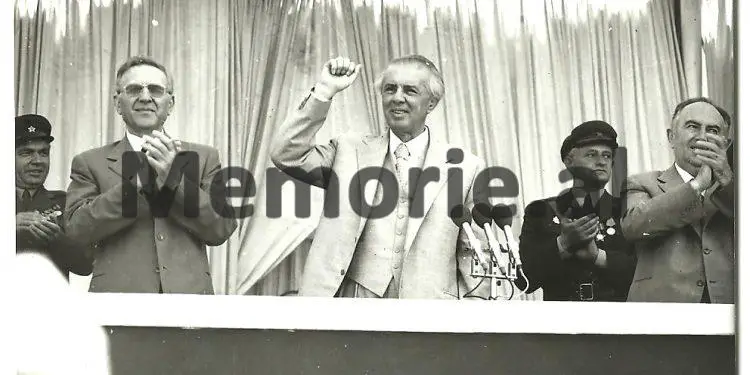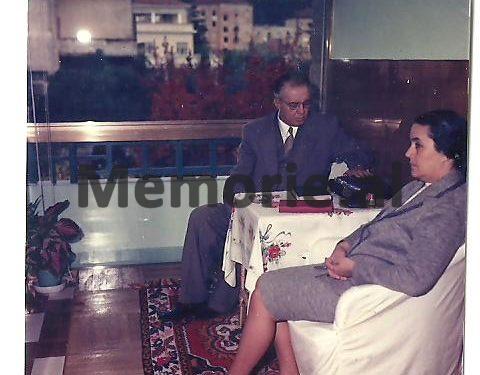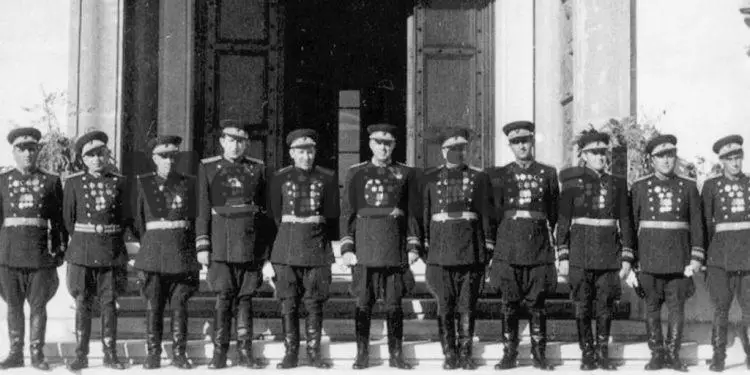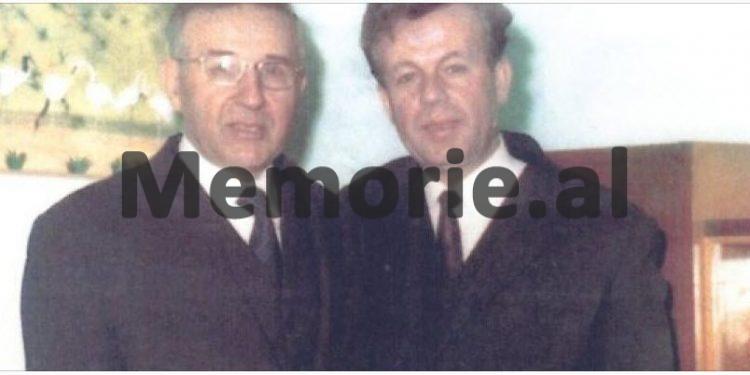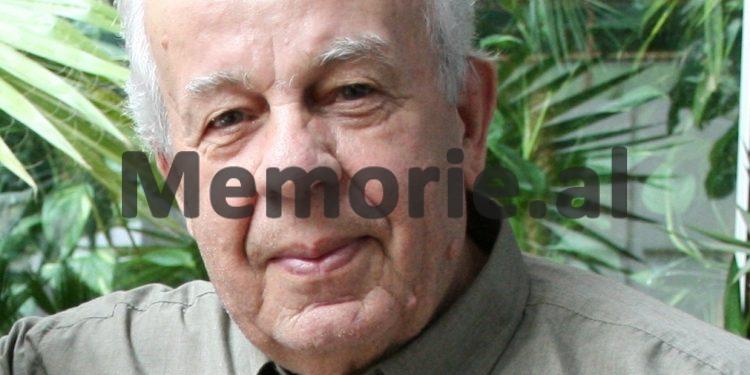Dashnor Kaloçi
Memorie.al publishes the unknown stories of the family of the former Albanian Prime Minister, Mehmet Shehu, from the period of the Zog Monarchy and during the years of the occupation of Albania, when after his return from exile in France, he and his whole family joined the Anti-Fascist Movement, standing in the mountains until the end of the War. The horrific event of 1944, when Mehmet’s brother Arshiu, in order not to be discovered by German forces passing by with a convoy, threw his six-month-old daughter, who was crying incessantly, into the abyss. All these and other events come exclusively for Memorie.al from the interview with Kujtim Shehu, the son of the brother of the former Albanian Prime Minister, Mehmet Shehu, who tells some of the most talked about stories of their family, such as: the murder of the Italian officer that Mehmeti had a schoolmate in Modena and had stayed at his house and the wrong treatment his son, Bashkim Shehu, had given him that event in his book, “Autumn of Anxiety.” Mehmet’s relations with Koci Xoxa and the attempts to arrest him in 1947, when he was forced to hide in his village, Çorush, the strained relations with Enver, Skender’s engagement to Silva Turdi and how she was received by his brothers? ! How did they learn in Fier the news of Mehmet’s death, their arrival in Tirana and staying near the funeral home at his uncle’s villa in Bllok, which was surrounded by guards with machine guns! The funeral of Prime Minister Shehu the next day only with the family members under the strict surveillance of the State Security people, as well as the inhumane treatment that was then done to their family, which led to the suicide of the brother-in-law who was thrown from the fifth floor. in Fier, until the physical elimination of Mehmet’s brother, Arshiu, Kujtim’s father, who was found dead at the Mbrostar Bridge in Fier, etc.
“On the morning of December 18, 1981, like any other ordinary day, I was at work near the Petroleum Vehicle Park in Fier, where I worked as a mechanical engineer and did not know anything about what had happened in Tirana with our uncle, Mehmet. , the Prime Minister of Albania. On the afternoon of that day, the other uncle, Durua, had called from Tirana to our house and told my father, Arshi, to leave urgently for Tirana at his brother Mehmeti’s house. During that brief telephone conversation, Durua had not told his father at all what had happened to their brother, but had hung up the phone, telling him that: that order to go urgently to Tirana had been given by Enver Hoxha himself. . After that, my father called me and we both went out and went to the Chairman of the Committee, Ligor Çifligu, who was very willing, giving us his car to come to Tirana. When we arrived in the capital, around six o’clock in the evening, we did not go directly to my uncle’s villa in Bllok, but to the house of my sister, Shqiponja, who had grown up and had been married to Mehmet’s house. There we learned about what had happened, as our brother-in-law, Pirro Stefani, who worked as Director of Foreign Affairs at the Ministry of Foreign Affairs, told us that they had gathered at an emergency meeting at the Ministry and communicated the news to them, telling them that: Mehmet The sheikh had killed himself and with that gesture he was an enemy of the Party. A few minutes later, we heard that in the official announcement of the Central Committee that was broadcast by the Albanian Radio-Television, in the news edition of 20:00, after which a show with folk music was given! After that official news, my father, Arshiu, and I set off in the direction of Mehmet’s villa in Bllok, and along the way from “December 21” to the checkpoint at the entrance of the Central Committee, several officers from behind followed us. Security-clad civilians, whom I knew as faces. There at the Bloc, security measures were increased as seldom ever, and in addition to numerous officers, soldiers carrying light machine guns were also dubbed. At the checkpoint, without much delay, we were allowed to enter, as I told the officer that I was Mehmet’s nephew and my father was his brother.
He testifies for the first time exclusively for Memorie.al, is Kujtim Shehu, the nephew of former Albanian Prime Minister Mehmet Shehu, who tells the whole unknown story of his uncle’s family and the relationship they had with Enver Hoxha. One of the most sensational and rare testimonies that the son of the brother of the former prime minister of Enver Hoxha’s communist regime made public for the first time, is what happened in the Shehu family villa and around it, from the evening. of December 18, 1981, and until the day after Mehmet’s burial, in the public cemetery of Sharra. From the description of all those moments that happened minute by minute in the villa where the former prime minister’s lifeless body was, his nephew, Kujtim Shehu, sheds light on many of the enigmas and mysteries that have covered that unusual event of it happened that distant winter night in the “Block” where the highest leaders of the communist leadership of the Albanian state lived. But what was the Shehu family like, what relationship did Mehmet build with his parents, brothers and close family members, and how did they flow and develop, from the time of the War until the last day of his life? What was Enver Hoxha’s first meeting with the Shehu family and why did Mehmeti have a heated debate with his father, Sheh Ismaili, about the words he had said to “Usta Hasani” as he was known by the pseudonym Enver at the time? How did Mehmeti escape without being physically eliminated in 1947, when he was fired from the position of Chief of Staff, and who were the people who protected him for two months in a row, staying with a machine gun in his house in Çorush? What happened in the Shehu family after the engagement of the second son, Skënder, and how was that engagement received by Mehmet’s brothers? What are the versions given by the nephew of the former Albanian Prime Minister with his testimonies, regarding the death of his uncle, Mehmet, father, Arshi and Vladimir, what new facts does he bring and why does he insist that the three of them did not commit suicide? , but have been eliminated by the State Security by order from above? Regarding these mysteries and many other facts and events unknown until today from the history of the Shehu family, we know the exclusive interview of Kujtim Shehu for Memorie.al, starting from today’s issue.
Continued from the previous issue
Mr. Kujtim, what did you notice when you went there, how was the situation around the “Leadership Bloc?
Before we approached the main entrance of the Block, I told my father that some State Security people were following us, who were sewn from behind from our sister’s house, on “December 21”. But Arshi, who had become bitter, answered me, saying: They have their work. After we were introduced to who we were, from the checkpoint to the entrance of the Central Committee, to the main entrance of Mehmet’s villa, we were again accompanied by some Security people, and the situation there was very suffocating.
Were the Security people who accompanied him on the spot those of the escort and service group that Mehmet had, or others?
Those who escorted us to the main entrance of the villa were faces completely unknown to us, and all the time we were there, we did not see any of the officers of the escort or service group that Mehmet had had until then.
Was Ali Ceno there?
Ali was not there either.
Who was waiting for you when you entered the villa?
As soon as we entered the main door of Mehmet’s villa, Vladimir and Bashkim came out in front of us, who, after embracing us, escorted us to the second floor, where the other people were.
What people did you find in those moments inside the Shehu family villa?
After Ladi and Bashkim, who were waiting for us at the entrance of the house, we then met Fiqreta, who, together with her two sons, accompanied us to the room where Mehmet’s lifeless body was found. In that room, my father and I also met two uncles, and at the same time Mehmet’s brothers, Duron and Nexhip. Also in that room were Vladimir’s wife, Fatbardha, the Union’s wife, Marjeta, and her father. Lefter, as well as his uncle’s wife, Duros, Aphrodite. Of Mehmet’s family, only Skënderi, who was studying in Sweden, was missing.
There were no other relatives there at home?
Apart from these I mentioned, there was no one else.
What about the service staff, was there anyone there?
Of the Shehu family’s service personnel, only one of the doctors, Miltua, was inside.
Where was Mehmet’s body placed?
Mehmet’s lifeless body, dressed in a suit, was in the room where all of us were and he was placed on one of the sofas. His body was in a position, somewhat unusual, having his left hand, with his thumb slightly bent and resting on his abdomen, and his right hand open and slightly below his left.
How do you explain that?
Perhaps his body was put in that position to show that he had committed suicide.
What conversations did you have with each other during that time you stayed in that room?
There were very few conversations, for the elderly said they did not speak at all. We were all sad and the only conversations that took place between Mehmet’s brothers and the rest of us who were there, was how Mehmet did that job, killing himself ?!
Did you two boys, Ladin and Bashkim, ask Fiqret how the incident happened?
From the first moment we entered, I asked Vladimir how the work had gone and whether they had heard gunshots.
What was said to Ladi?
Ladi told us that by 01.00 pm, they had eavesdropped on Mehmet and after that hour they had fallen asleep and had not heard any screams. I asked Ladin again, telling him how it was possible that they had not heard the sound of the pistol, but he replied, “We were very tired and we did not hear anything.
Did anyone else come there at night at Mehmet’s villa and how long did you stay there?
Throughout the night of December 18, and until dawn on the morning of December 19, no one else came. While we were there, only Durua left at 12 o’clock at night and there remained his wife, Aferdita, who took care of Fiqret and Vladimir’s bride, Bardha, who was pregnant and waited for minutes to give birth. Likewise, Ladi would occasionally leave the room where we were, taking care of Bardha. All the rest of us were there, smoking cigarettes in the lobby and staying in the room most of the time without speaking at all.
Did Durua return to you?
No, he did not come there anymore, because Kadri Hazbi did not allow him to come. We learned that not that night, but later.
Did you have any sign from family members that the conversations were not eavesdropped on, because from various testimonies, it has been said that recently, Mehmeti and Fiqreta and the children, when they had something important to talk about, went out into the gardens because they knew that their conversations were eavesdropped on?
The sign of not talking we didn’t have from anyone, but maybe each of us who were there and had information about how things had turned out by then, thought that thing to themselves and maybe for that fact, our conversations were to slim.
Did you have a phone call that night?
Only my sister Shqiponja, got on the phone twice and crying, asked to come there, but Ladi told her not to come and she did not come.
What about someone else in the family who called them that night?
No other phone calls were made, because after 12 o’clock at night, the family’s phones were cut off and they stopped working.
What about the staff, did anyone else come to the villa at night?
With the exception of the family doctor, Miltos, who took care of my father, Arshi, all night, making them calm down, no one else came there that night. That night was very tiring for us and it was constantly raining outside, which did not stop the next day.
What about the other villas that looked like Mehmet’s, were there any lights on at night?
From that position where the room we were in, nothing was visible. From there, none of the other villas could be seen.
But on the morning of December 19, did anyone come to the villa and how did the events turn out that day?
Around 8.00 that day, Ladi and Duro’s wife, Aferdita, left the house and went to the neighborhood to get their burial permit. They returned to the villa at around 10:00 a.m. and told us that they had removed many barriers and had barely given them permission to bury them. They also told us that around the villa, there were many soldiers and armed officers, up to light machine guns.
With whom did Ladi communicate and why did he go to get the burial permit, did not the people of the service personnel come to deal with those jobs?
The next day, none of the service personnel came, and all night long, the coffee was made by the women themselves. There was also a lack of kitchen staff and no food supplies. So Ladi and Duro’s wife had bought cheese bread at a nearby store and brought it to us to eat. I don’t know with whom Ladi communicated, who went to get the burial permit, but maybe that was communicated by phone to those who had been assigned for that job.
What about during the night, was there a discussion between you about how the funeral would take place?
The funeral ceremony was not discussed at all, because as the situation was showing, it was easy to understand that it was not a state funeral at all. But as far as I remember, that was communicated to Lad by the relevant officers, that Mehmet’s funeral would take place in Sharra.
When did you get out of the villa to go to the cemetery?
After Ladi came with Drita, an employee of the Municipality came after them, who brought the coffin, which was quite common. After all of us who were there kissed Mehmet for the last time, the Commune employee closed the lid of the coffin. After that, it was decided that Lady, Bashkim, Nexhip, Lefter and Marjeta would go to the cemetery. While Fiqretja, with Duro’s wife, would stay there to take care of Bardha, who was waiting for the car to go to the maternity hospital to give birth. After that, the six of us took the coffin and went out to the yard of the villa, where at her entrance, came the funeral car, an old “Zuk”, which was used by the Municipality for the population.
When you came out of the villa with Mehmet’s coffin, how was the situation around it, were there any reinforcements in the service guards?
Before answering this, in parentheses I wanted to say that: that heavy rain that had started and was falling relentlessly since the night before, ceased as if someone had stopped it with one hand, as soon as we came out of the main entrance of villa and at that time a ray of sunshine came out. Likewise, as soon as we put the coffin in the funeral car, the rain started to fall again, just like before. What I am telling you is more than accurate, and it has stuck in my mind as something unusual, because as a descendant of a family of sheikhs, I am very religious and I say that it was not just a coincidence. As for security measures around the villa and the whole Block, they were reinforced, as the day before, with numerous soldiers and officers, which was even better distinguished that day.
Apart from you, were there other people outside who would come to the cemetery and what route did you take to get to Sharra where the burial would take place?
Except for the six of us, there was no one else to come to the cemetery. After we placed the coffin in the “Zuk” car of the funeral, where only the driver of the Municipal Enterprise was, the car started passing on the road behind the Central Committee of that time, on the south side where today is the Presidency of the People’s Assembly, which leads in the direction of Lana. As the car drove forward, behind it were Ladi, Marjeta and Bashkimi, and behind them I was walking with my uncle, Nexhip, and Ladi’s father-in-law, Lefter. As we walked behind the car, from inside the perimeter wall with railings of the Central Committee, we saw that many employees of the Prime Ministry and the Ministry of Foreign Affairs had come out, the building of which was next to it at that time. As soon as we passed the building of the Ministry of Foreign Affairs, we saw the stop of an old bus type “Zis” (from those produced at that time in Shkodra), which had been taken out to take us to the cemetery. That bus was quite old and most of the windows were without windows, but we took our seats there without speaking at all. After the car passed behind the park where the busts of the “Frashëri Brothers” are today, it turned left, traversing the entire road along the Lana, until the “Vasil Shanto” Bridge. From there we did not return to the road that leads to the intersection of “December 21”, but continued towards Lana and we went on the national road to lead to Kombinat, and then to the cemetery of Sharra.
Why did you go there and not the main road, where the cortege cars usually passed?
The funeral car and the bus were commanded by another man, without asking us, and the drivers carried out the orders they had received from those who had organized the six-person cortege.
But when you went to the cemetery, was there anyone else who had come there?
We arrived at the Sharra Cemetery around 11:30 a.m., where it was still raining, and there was no one alive except us. As soon as we got off the coffin, Zuk’s funeral car and bus left immediately. When we reached the open grave, (the last parcel, the third row from the front, we lowered the coffin over the pile of earth and at that time, we noticed that at a distance of about 20-25 meters away from us, some State Security employees who they were placed in the shape of a bow with a face from us. After we took out the coffin, Ladi took a letter out of his pocket and talked for about a minute, reading what he had written. After his last words and goodbye, two employees of cemeteries, which with the shovels that were there, began to cover the grave with earth, with the help of us as well. So was the whole burial ceremony, which lasted no more than 10 minutes.
With what did he return from the cemetery home?
We left with a six-seat “Gaz”, which they had brought especially for us, as so many people were becoming total. Even the vehicle that had been taken to the Republican Guard was very old and had wooden benches instead of seats.
How far did you go with that vehicle?
That vehicle left us somewhere at the University Bookstore, and after we got down there, to go to the villa, we did not go out of the main entrance to the Block, that is, to the Central Committee, but fell from the garden in front of the Presidency building. There the guards stopped us and the service officer told us that there was an order not to let us in.
Did any of you react?
After they left us in the rain for about 30 minutes, where we became water, I started talking to the service officers, telling them that I had my sick father at the villa. But Ladi started talking to me, telling me not to talk to the officers, as they were just following orders from others.
How did they justify that, that is, the order not to let you get into the villa?
As far as we understood, there were contradictions in the orders given to hinder us, and after Ladi’s insistence, that was clarified and we were allowed to enter. When we entered the house, we met Fiqret and while we were telling her how the funeral went, she made us coffee.
How long did you stay there?
I didn’t stay long and together with my father, Arshi, we went out to catch the train to go to Fier. All the way, even on the train, we had State Security people surveying us, almost openly, without trying to hide.
During the train journey to Fier, did you talk to your father?
Ever since we got on the train, we have been comforted by fans and other people from Fier who knew us well. All the way, my father was almost silent and only once spoke in a low voice, saying to me: “Woe to you where you will end up, but the ishalla left those three boys together”, referring to Ladin, Skënder and Bashkimi. .
But when you went to your house in Fier, were there people who had gone for comfort?
That night when we were in Tirana, the Second Secretary of the District Party Committee, Vullnet Radovicka, had gone to our house for comfort, who then “paid dearly” for it, after he was expelled from the Party, sent teachers to the village. After that day, the situation for our family became very difficult and knowing that, the father sent words to our relatives and friends, so that they would not come to our house, because they would have problems and consequences. My father sent me to Patos to the house of Alush Manes, the brother of Qamail Mane Islami, a close friend of Mehmet. I gave him the father’s order so that they would not feel it, but Alushi was then hit with his whole family.
How did the events unfold with your family?
After Mehmet’s event, our family was constantly monitored by the people of the State Security, and after trying several times to get us out of the house, we were deprived of the right to practice the professions we had. The most tragic event was that of our brother-in-law, Llazi Polo (the husband of our older sister), who was under a lot of pressure at the time, being summoned several times to the Party Committee. As a result, he suffered a severe depression and was hospitalized for six months in a psychiatric hospital. Just two weeks after he came out of there, in extremely severe psychological conditions, he ended his life by committing suicide after jumping from the fifth floor of the building where he lived. After that, my sister was left widowed with only two orphaned children without a father. A similar fate befell the third sister, Merushja, whose husband, (AS), who worked as a Security Officer, was very mean to her, taking her children after manipulating the trial and leaving our sister in state of insanity.
What happened to your father, Arshi?
From the incident with Mehmet, the father was left alone because everyone left him and how he spoke to the man with his mouth. At first she was expelled from the Party and then re-admitted, and she was forced to speak out against his brother, Mehmet. Until the beginning of 1985, the father went through extremely difficult moments and extraordinary stresses. On March 7, 1985, while I was working, my sister’s son came and told me that he had lost his grandfather. I immediately went home and my two sisters, Merushja and Pranvera, went to look for him and found him near the Mbrostar Bridge, next to the train track, in a small pond with a little water left by the river that passed nearby. His face was covered with mud and he gave up the ghost in their hands.
What happened to him, was it natural death, (that he might have fallen), murder, or suicide ?!
That death raised many doubts about our family, but even today I do not think that my father committed suicide, as was said at the time by the Forensic Medicine. I explain this simply by logical deduction, that: if he wanted to kill himself, his father could jump and drown at the Mbrostar Bridge and not where he was found there in a pond with very little water and a lot of mud. There is also another fact that undermines the official version of suicide. Shortly before that event, that is, his death, about 1 km. away from that place, the father was seen by some people, to meet a person, (resident in Fier and originally from Northern Albania), who was known by all who worked for the State Security. Couldn’t that have been just a coincidence? Just as I have always doubted the death of my father, Arshiu, I have also doubted that of my uncle’s son, Vladimir, who was also said to have committed suicide. I also have many doubts about Fiqret’s death in mysterious and still unexplained circumstances, in Shënkolli Prison.
Where do you base those doubts?
I base them on many different things and facts, but I prefer not to talk about them now. Now I take this opportunity to tell you only the conclusions I have drawn from them: The State Security, always according to the instructions it received from the senior leadership of the ALP, was interested in the death of Vladimir and my father, Arshi, to say that as the Party said, that is; “They committed suicide, just like Mehmet Shehu.” So, by opening the version of their suicide, the people were told that: “Like Mehmet, Arshi and Vladimir ended their lives, because they had the suicide in their genes”. So everything was done to cover up Mehmet’s murder.
Why do you believe that Mehmet was killed?
The whole of Albania knows that Mehmet Shehu was killed. But it doesn’t really matter who pulled the trigger. Mehmeti was “killed” a few months ago and at midnight on December 18, 1981, he was only given the “last formalities”./Memorie.al




